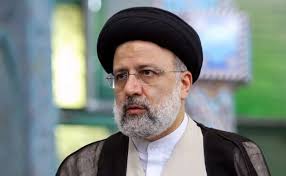
Impact of Ebrahim Raisi’s Death on India’s Strategic Interests
The sudden death of Iranian President Ebrahim Raisi is a significant blow to India’s efforts in navigating the complex web of US sanctions and Sino-Indian competition in West Asia. Raisi, who died in a helicopter crash on May 19 along with other top officials, played a crucial role in India’s strategy to balance its relations in the region while maintaining its stance on strategic autonomy.
For India, Iran is a key player in maintaining regional stability and advancing strategic interests. New Delhi has long had to juggle its relations with Iran amid the pressure of US sanctions. Raisi’s tenure brought a sense of stability and cooperation that India relied on, particularly in terms of developing the Chabahar port—a strategic project crucial for India’s connectivity with Afghanistan and Central Asia, bypassing Pakistan.
The Chabahar port project is emblematic of India’s persistent efforts to strengthen its presence in West Asia despite the challenging geopolitical climate. Just days before Raisi’s death, India signed a 10-year contract to develop and operate the Shahid Beheshti terminal at Chabahar. This agreement highlights India’s commitment to enhancing regional connectivity and economic integration, a vision often disrupted by US sanctions on Iran.
Raisi’s death injects uncertainty into these plans. His presidency, despite being marred by internal issues and international criticism, represented a period during which India could advance its strategic projects in Iran. His absence might lead to a shift in Iran’s approach towards these projects, complicating India’s efforts to maintain its foothold in the region.
India’s decision to announce a day of national mourning for Raisi underscores the importance of its relationship with Iran. This gesture reflects India’s pragmatic approach to foreign policy, prioritizing long-term strategic interests over immediate political considerations. Maintaining a robust relationship with Iran is vital for India, especially in the face of competition from China, which is also vying for influence in West Asia.
Furthermore, the Chabahar port serves as a critical counterbalance to China’s investments in Pakistan’s Gwadar port. By developing Chabahar, India not only enhances its trade routes but also asserts its influence in a region where China’s Belt and Road Initiative is making significant inroads.
The volatility in US-Iran relations adds another layer of complexity. India’s strategic projects with Iran, like the Chabahar port, often face the threat of being undermined by new rounds of US sanctions. Despite this, India has consistently pushed forward, recognizing the long-term benefits of a strong partnership with Iran.
Ebrahim Raisi’s death is a reminder of the unpredictable nature of West Asian geopolitics. For India, it means reassessing and possibly re-negotiating its strategic initiatives in the region. While the immediate impact is a setback, India’s deep-rooted ties with Iran and its strategic investments like the Chabahar port will likely continue to be a priority, albeit with new challenges on the horizon.
In navigating these turbulent waters, India must remain steadfast in its approach, balancing its relations with key regional players while managing external pressures, particularly from the US. The path ahead is fraught with challenges, but India’s long-term vision for its role in West Asia remains clear and crucial.
